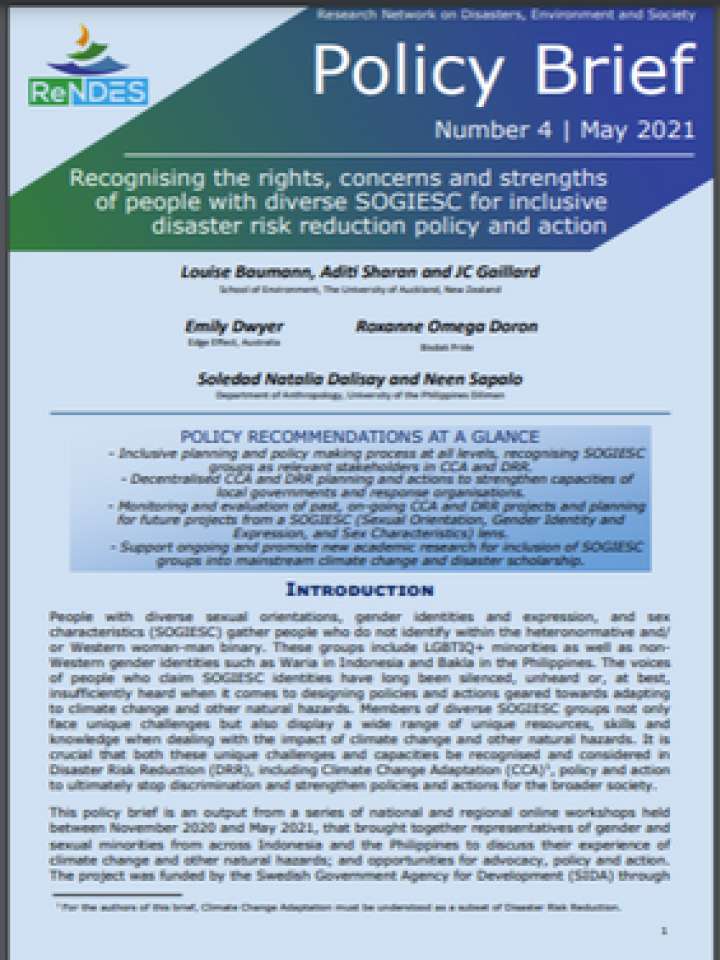Recognising the rights, concerns and strengths of people with diverse SOGIESC for inclusive disaster risk reduction policy and action
This policy brief is an output from a series of national and regional online workshops held between November 2020 and May 2021, that brought together representatives of gender and sexual minorities from across Indonesia and the Philippines to discuss their experience of climate change and other natural hazards; and opportunities for advocacy, policy and action. People with diverse sexual orientations, gender identities and expression, and sex characteristics (SOGIESC) gather people who do not identify within the heteronormative and/ or Western woman-man binary. These groups include LGBTIQ+ minorities as well as nonWestern gender identities such as Waria in Indonesia and Bakla in the Philippines. The voices of people who claim SOGIESC identities have long been silenced, unheard or, at best, insufficiently heard when it comes to designing policies and actions geared towards adapting to climate change and other natural hazards.
Recommendations were informed by rainbow community members who took part in the Platforms for the inclusion of non-normative genders and sexualities in CCA policy and action project along with the Edge Effect/UNWomen systems review of diverse SOGIESC inclusion across the humanitarian and DRR sectors:
- Inclusive planning and policy making process at all levels, recognising SOGIESC groups as essential stakeholders in DRR, including CCA .
- Decentralised and localised DRR, including CCA, planning and actions to strengthen capacities of local governments and response organisations.
- Monitoring and evaluation of past, on-going DRR projects and planning for future projects from a SOGIESC lens.
- Support ongoing and promote new academic research for inclusion of SOGIESC groups into mainstream climate change and disaster scholarship.
Explore further
